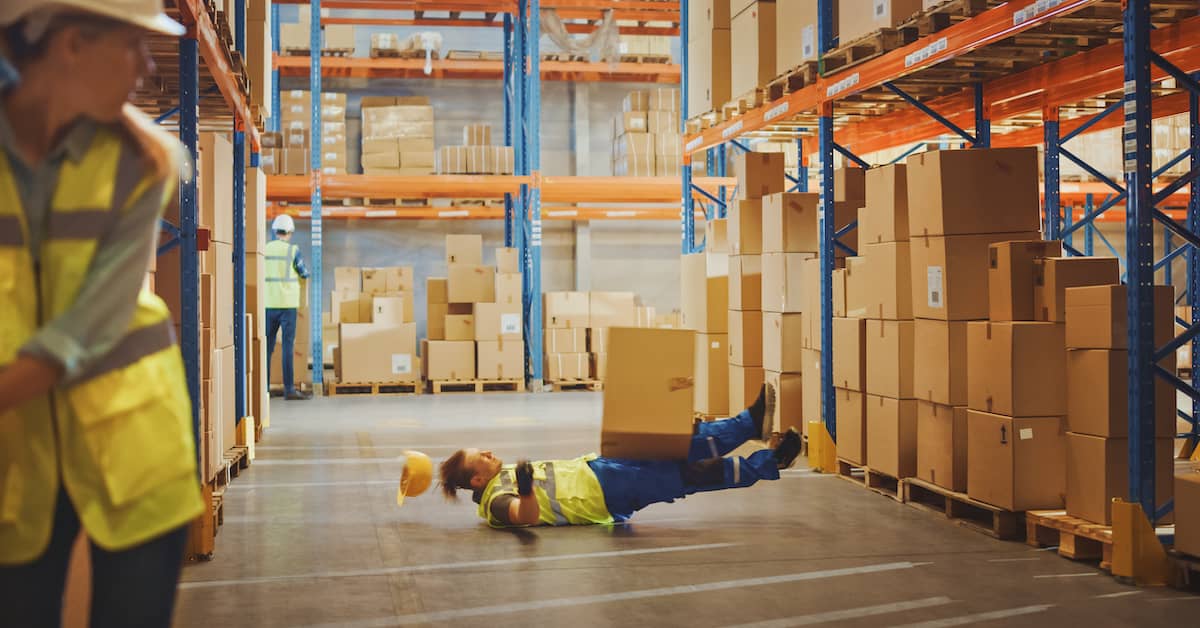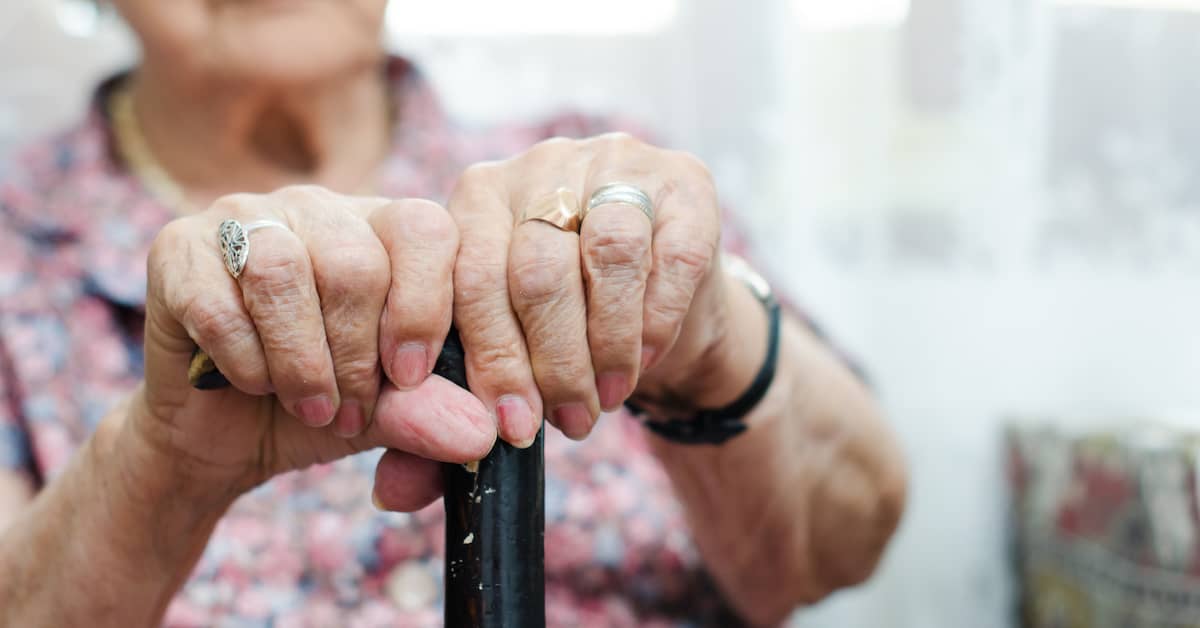What Happens if You Fall at Work?
A fall at work is the last thing you want to imagine. Unfortunately, slips, trips, and falls ranked third in the nation in 2020 for most frequent occupational injuries, per Injury Facts. Knowing what steps to take in case you fall at work could benefit you.
When you’re in pain and wondering if your injury will stop you from being able to live the life you had before, the last thing you want to do is learn how to assert your rights in a workers’ compensation claim. We’ve compiled a list of the next steps in the event of an unfortunate fall while at work.
If you are injured in a fall at work in Orlando, you will most likely qualify for workers’ compensation under Florida law. You may still want to consult a workers’ compensation lawyer to ensure you maximize your benefits.
Schedule a FREE, no-obligation consultation with the attorneys at Colling Gilbert Wright by calling (407) 712-7300 today.
What Can Cause a Fall at Work?
According to the Centers for Disease Control and Prevention (CDC), the construction industry has the “highest frequency of fall-related deaths.” However, injuries from nonfatal falls are most prevalent in “health services and the wholesale and retail industries.” Though this data was gathered in 2020, the construction, health services, and wholesale/retail industries have been found to have a high incidence of falls over time.
Some of the more common causes of falls at work include:
- Wet/oily/slippery floor (often from neglected spills)
- Uneven walking surfaces
- Cluttered walking/working space
- Poor lighting
- Loose mats or rugs
- Uncovered cables
- Weather hazards (icy, snowy, slick surfaces)
- Unsafely used or positioned ladders
- Failure to follow safety precautions
In addition to the above, some common causes of falls in construction are:
- Improperly-used fall protection
- Unprotected edges
- Floor holes & wall openings
What Are Common Injuries Related to a Fall at Work?
Injuries related to a fall at work can range dramatically. According to Injury Facts, 82% of nonfatal injuries from slips, trips, and falls result in:
- Soreness & pain
- Sprains, strains, or tears
- Broken bones
- Bruises and/or contusions
However, head, back, and neck injuries, cuts, scratches, and bumps are also common.
Head injuries resulting from a fall, even from a standing position, are dangerous. Falls can be fatal—do not forget. Any fall should be taken seriously, and the injured party should be seen by a physician, especially if they bumped their head in the process.
Read More: Can I Sue Workers’ Comp for Pain and Suffering in Florida?
What To Do After a Fall at Work?
Since a fall at work can range in severity, it is vital to take steps to protect yourself in the aftermath. Even if you feel fine immediately after, injuries could have yet to surface. To preserve your health and your rights to compensation, we offer these guidelines to follow after a fall at work:
1. Seek Medical Attention
Don’t hesitate. Call 911 or go to the closest emergency room if you need immediate treatment for your injury. If it isn’t an emergency, your employers or their insurance company may require that a specific physician evaluate your injuries. Ask for their information, and schedule an appointment.
An immediate evaluation of your injuries can protect both you and your employer. Remember to obtain copies of the following:
- Scans and/or x-rays
- Medical bills
- Medical records
- Any instructions or statements made by the doctor who examined you
2. Document the Scene
If you require emergency medical treatment, disregard this step until your next opportunity. However, document the scene of the fall as soon as you are able.
Take photos of where the fall occurred and any obstacles/hazards present that could be responsible for your fall. Talk to witnesses and any colleagues who knew of the potential danger.
3. Report the Injury to Your Employer
As soon as possible, report the incident to your employer. Reporting early on can benefit you for two reasons: Your report will be thorough with the accident still fresh in your mind. Florida Statute § 440.185 dictates that you only have 30 days from the “manifestation” of your injury to report the accident to your employer. If you don’t report an accident and injury within 30 days, your claim for workers’ compensation is likely to be rejected.
You may find pertinent information for reporting your injury in your employee handbook. Likely, you will need to provide the following:
- Date the injury occurred
- Details of the injury
- The effect the injury has had on your life and your ability to work
Ensure you are given a copy of the injury report and all other relevant documentation, including the insurance company’s name and contact information.
After you’ve reported your injury, your employer must notify their workers’ compensation insurance within 7 days. If they fail to do so, you have every right to contact the insurance company on your own.
Read More: How to File a Workers’ Compensation Claim
4. Gather Your Evidence and Documentation
The key to a solid claim is solid evidence and documentation. Be vigilant in gathering and maintaining any documentation from the fall on. This might include:
- Photos of the scene
- Proof of obstacles/hazards that caused the fall
- Physical evidence
- Witness statements
- Medical bills
- Medical history
- Doctor’s directives
- Treatment plans
- Receipts for prescriptions
- Time off work records
- Pain journal
- Incident reports
- Correspondence with your employer, the insurance company, doctors, etc.
5. Hire a Workers’ Compensation Lawyer
Navigating the workers’ compensation system can be a nightmare, even when you are healthy. If you’re trying to recover from a fall-related injury, it’s even more difficult. Hiring a qualified workers’ compensation attorney may be in your best interest.
An experienced attorney can help:
- Fill out the proper forms & file them on time
- Pursue the appropriate benefits for your injury
- Negotiate on your behalf
- Pursue all legal options if a dispute arises or your claim is denied
Read More: How Long Does It Take to Settle a Workers’ Comp Case in Florida?
When Should You Call a Workers’ Compensation Lawyer?
The first thing you should do after an accident at work is seek medical attention. The second thing you should do is contact a workers’ compensation attorney to evaluate your case. A knowledgeable lawyer can navigate your claim smoothly and pursue maximum benefits.
Additionally, if your fall at work occurred while you were visiting outside your regular work hours, you likely won’t have a workers’ compensation claim. However, if that fall was due to the negligence of the property owner or operator, you may have a premises liability claim. Your lawyer will understand the ins and outs of your case and be able to handle it accordingly.
Read More: Can I Sue My Employer for Denying Workers’ Comp?
Workers’ compensation will likely cover your losses if you’ve been injured in a fall at work in Orlando. Under Florida law, most eligible employees are entitled to benefits regardless of how they were injured, barring intoxication or purposely injuring themselves.
Contact Colling Gilbert Wright today for a FREE case evaluation with one of our Orlando workers’ compensation lawyers!

 (407) 712-7300
(407) 712-7300
































